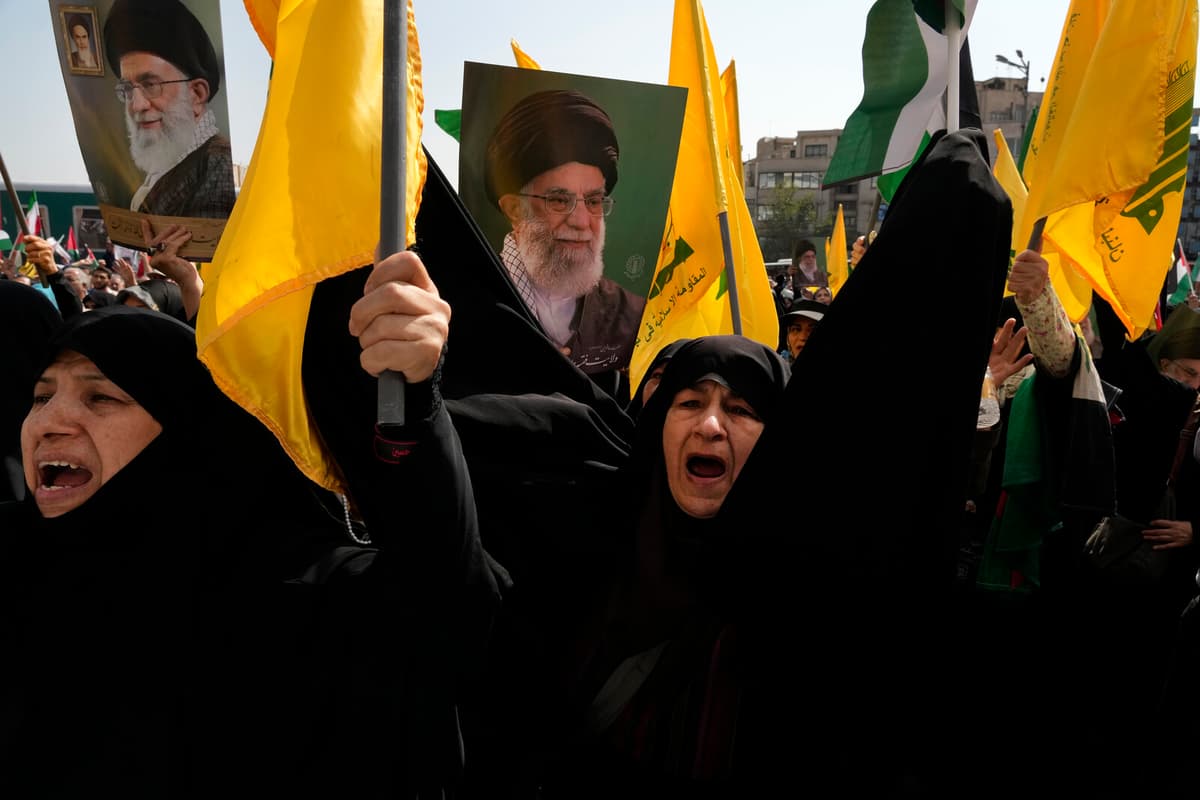Iran does not want war, according to several analysts. Not least since a direct military confrontation with Israel would likely worsen the country's isolation and heavily sanctioned economy.
Iran will not be drawn into a war, says Hamid Gholamzadeh, an Iran-based political analyst.
At the same time, Tehran is keen to continue backing its Shia Muslim protégé in Lebanon. On Friday, Iranian Foreign Minister Abbas Araghchi said that Iran will not "remain indifferent" if a large-scale war breaks out in Lebanon.
Iran and Hezbollah have been closely linked for a long time, with Hezbollah as Iran's closest geographical proxy against archenemy Israel. Over the years, Tehran has, according to intelligence, supplied the Shia militia with large quantities of weapons via Syria.
"Holding back"
An escalation involving Iran directly would primarily benefit Israel and affect the upcoming presidential election in the USA, believes Tehran. According to analysts, Iran is now flexing its muscles as much as possible – without risking provoking Washington.
Iran does not want to play into the hands of its archenemies, says Ali Vaez, an Iran expert at the International Crisis Group (ICG).
In his speech to the General Assembly in New York last week, Iranian President Masoud Pezeshkian portrayed Israel as a warmonger and Iran as restrained. According to Pezeshkian, Iran has "held back" since Hamas leader Ismail Haniya was killed in Tehran in July – which Israel is generally believed to be responsible for – in order not to jeopardize the peace talks on Gaza.
We made an effort not to respond. They said over and over again that peace (in Gaza) was within reach.
But we never reached the elusive peace. Every day, Israel commits more atrocities, said Pezeshkian.
Trump wants an agreement
Iran is under harsh Western sanctions, both from the USA and European countries. The sanctions were tightened, especially since Donald Trump decided to back out of the nuclear agreement JCPOA in 2018. Iran's nightmare is that Trump will again enter the White House, according to ICG's Ali Vaez.
It would be very harmful to Iran's interests, he says.
In New York, Pezeshkian claimed that Iran is ready to "sit down with Europeans and Americans for dialogue and negotiations". On Friday, Trump also claimed that he would try to reach an agreement with Iran if he became president again – without elaborating.
We must reach an agreement, for the consequences are impossible, says the Republican according to The Times of Israel.
An Islamist movement, created in the early 1980s as a reaction to a conflict situation similar to today's. The Palestinian Liberation Organization (PLO) had used southern Lebanon as a base for attacks against northern Israel, which led Israel to invade in 1982. Inspired by the Islamist revolution in Iran a few years earlier, Lebanese Islamists formed Hezbollah ("God's party"), a name chosen by the Iranian leader Khomeini.
An explicit main goal has been to expel all "colonialists". In practice, this has meant that much of the armed struggle has been directed against Israel – seen as the representative of the Western world in the Middle East.
Hezbollah has been a political party in Lebanon since 1982 and functions as "a state within a state", with a military power at least as great as the country's army and a strong role in politics and social life.






